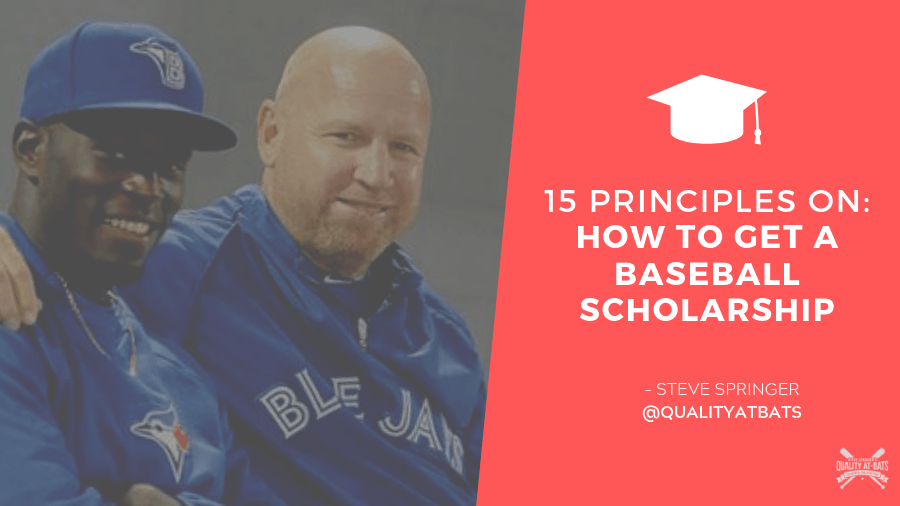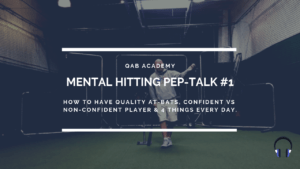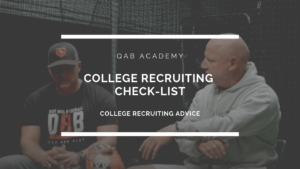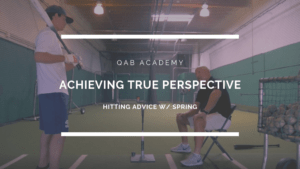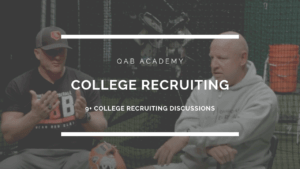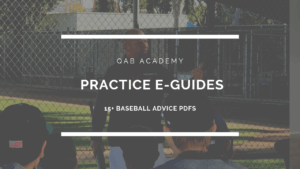One of the top questions I get during this time of the year relates to "How to get a baseball scholarship after highchool baseball".
Like most answers, it really depends on what type of player you are, what position you play, and what school you want to go to.
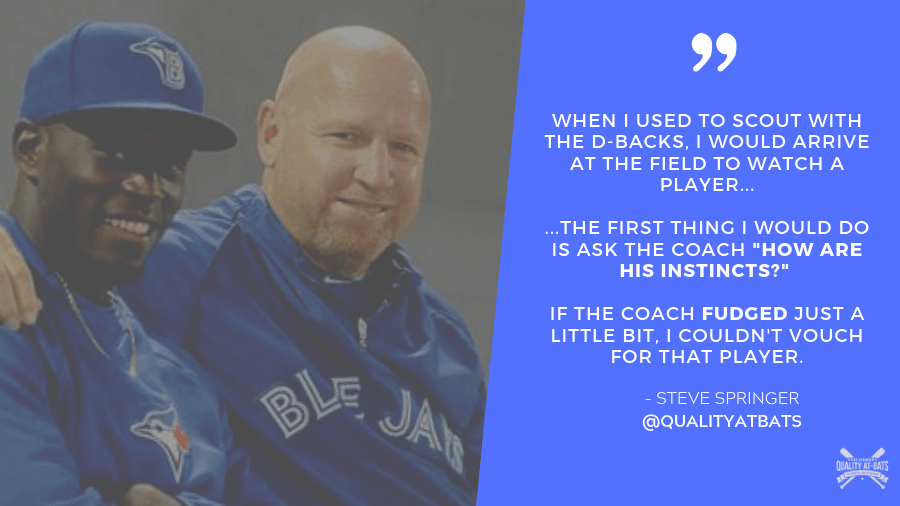
Be Labeled a Gamer
A gamer is a ballplayer that plays with calmness, toughness and focus w/ an attainable goal to help their team win. At the collegiate level or professional level, when you're playing four to six games a week, if you're not a better competitor than you are a player, you will underachieve.
I promise you, college recruiters are looking for gamers because a team full of gamers make it to the playoffs.
Get Good Grades
I didn't start in high school, got cut in college, then after my freshman year, I went from coaching first base to an all-state shortstop.
Got a scholarship to play at UCLA but I couldn't get in because I didn't have the grades? You think my dad was pissed?
Don't let your grades dictate where you play ball. Get good grades.
Play Both Sides of the Field Well
Why is it that if we strikeout, but then go out on the field, make a diving play to save a run, we're not 1-2 in our head with helping our team win.
Success isn't getting a hit. Success is helping your team win, in whatever way that looks like. Make a good play or hit a double.
Don't take your bad at-bats to the field.
Play both sides of the field well.
Have a Good Glove
Baseball has evolved immensely, said when I played. No longer are they sticking you in left field because you have a good bat. At the collegiate and professional level, you better have a good glove.
A good glove will keep your butt in the line-up when you're struggling.
If you want extra at-bats or up your stock as a prospect, make sure your glove is as good if not better than your bat. Sure, if you can hit, you'll play, but if you're a liability on defense, you won't be there in the late innings when the game is on the line.
Have a good glove.
Make Your Teammates Better
When it comes to college baseball recruiting, reputation is everything.
If you're playing this game, making it about you instead of about helping your teammates get ready to play with tension, pressure, and anxiety.
It's not about you it's about helping your team win, period. That's how you achieve freedom.
Make your teammates better.
Go To a School Who Needs to Fill Your Position
One of the first steps you need to take when choosing a school is looking at who's returning from the previous year that played your position.
If you're a middle infielder and the Short Stop for that school is a Freshman/Sophmore who had a good year and played for most of the games, you better hope you can play Second or Third.
Go To a School Who Needs to Fill Your Position.
Be Coachable
This isn't about becoming a cookie-cutter hitter, a yes-man or Johnny False-Hustle.
It's about not getting frazzled when the coach wants you to make an adjustment. It's also about knowing what you don't know and being willing to learn something new and then applying it at game speed.
Be coachable.
Have Good Instincts
When I used to scout with the D-Backs, I would arrive at the field to watch a player, the first thing I would do is ask the coach "how are his instincts?" If the coach fudged just a little bit, I couldn't vouch for that player.
Playing this game at the collegiate or professional level is hard enough with instincts and almost impossible without them.
If you want to get a college scholarship or play pro ball one day, have good instincts.
Be Able to Hit The Curveball
At the collegiate level, you better believe a Friday/Saturday starter will be able to locate the breaking ball and off-speed.
With runners in scoring position, more than half of pitches will be a secondary pitch. If you can't hit the curveball, you better be able to hit the fastball.
Do Your Own Recruiting
Send a skills video. 5-10 good swings, unedited. A recruiter want's to see if you can put a string of good swings together with controlled violence, good flight while looking "hitterish".
You don't need a 10-minute skills video. Keep it short. Keep it sweet, and parents, stay off the email. College coaches DO NOT want to hear from you. Trust me.
Players, do your own recruiting.
Be Willing To Walk On
Sometimes, walking on is your best bet. If you have no other option but a school gives you a chance to train, practice an compete, there's no shame in walking on.
I've seen it many times. A player walks on, wins a starting spot, has a good year, and then earns some scholarship money the following year.
There are players in the big leagues right now who walked on at a college.
Be willing to walk on.
Go D2, D3 or NAIA
There are so many schools looking for players.
There are players playing pro ball that never played a day fo D1 baseball who didn't get drafted out of high school.
You don't have to go D1 to play pro ball or get a good education.
Go Juco
Playing four-year ball is great as you're not sitting on your butt your Freshman and Sophmore year.
Go where you can play. That's the only way you're going to get better.
Go to Showcases That Have Multiple College Recruiters Attending
There is zero chance you're going to get recruited by a school at a showcase if there is no one there representing that school.
You're wasting your money if you're at a showcase where there are multiple college programs there to watch you run, field, throw, hit and compete.
That's why Trosky camps are great. 30+ college baseball programs attending a camp is more bag for your buck.
In closing, not everyone is going to play pro ball or make it to the big leagues, but you can't tell me you can't get an education out of this game.
There are SO MANY college baseball programs looking for players that can play.
I hope you enjoyed these "How To Get A Baseball Scholarship" principles.
If you have a favorite one, let me know below.
Want to get to hitting with confidence FASTER? Join over 3,000 hitters who are training their mental side of hitting, bat-speed and hitting I.Q. in the >>> QAB Academy
